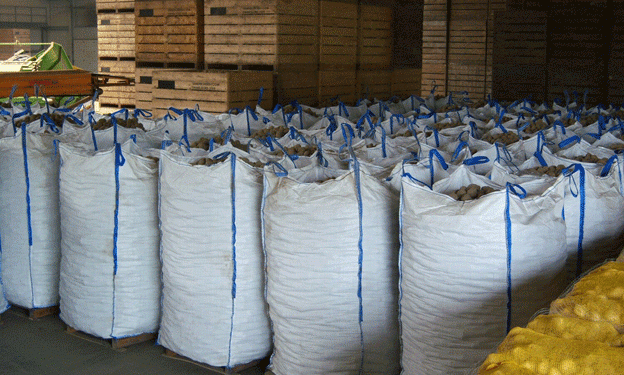Darende, located at an altitude of 1,300 meters in Turkey’s Malatya Province, has recently begun its annual potato harvest in the village of Palanga. Spanning 1,500 decares (around 150 hectares), the region’s potato yield is expected to reach an impressive 10,000 tons this year. The success of this harvest is attributed to organic farming practices and a favorable microclimate, making Darende a model for sustainable agricultural methods.
The Importance of Organic Practices
Farmers in Palanga take pride in growing their potatoes without the use of chemicals, relying on natural methods to maintain soil health and manage pests. This practice not only ensures the potatoes are organically certified but also contributes to healthier ecosystems. According to the Organic Trade Association, global organic farming continues to grow, with the organic food market expanding by 5% annually in the U.S. alone. The demand for organic produce, including potatoes, has increased due to growing consumer awareness of the health benefits and environmental impact of non-chemical farming.
Palanga’s farmers cultivate potatoes in high-altitude fields that benefit from a microclimate—a localized weather pattern that creates optimal conditions for crop growth. The region’s irrigated plains, recognized as Darende’s largest, offer a natural advantage for high-quality, high-yield farming.
Sustainability and Economic Impact
The Palanga District is a prime example of how organic farming can deliver significant yields while maintaining environmental sustainability. The absence of diseases in the soil, as reported by the village head, Hakan Gökçe, highlights the long-term benefits of organic farming for soil health. This creates a resilient ecosystem that ensures sustainable agricultural productivity.
However, there are challenges that accompany organic farming, especially for high-demand crops like potatoes. One such issue is that a large portion of the potatoes grown in the region is exported, particularly to foreign markets, due to higher domestic prices. As local consumers are often deterred by the cost, the surplus potatoes are gathered by surrounding residents for personal use or local consumption, ensuring minimal waste.
High-Altitude Farming and Its Advantages
Potatoes grown at 1,300 meters above sea level benefit from the natural cooling effect and more temperate growing conditions that high-altitude environments provide. These conditions help reduce the risks associated with extreme weather, such as droughts and extreme heat, that can harm potato crops. Such natural advantages make high-altitude farming a sustainable option for regions prone to variable climates.
Studies indicate that high-altitude potato farming can result in superior tuber quality, with lower incidence of pests and diseases compared to lower-altitude regions. This makes it an appealing option for farmers seeking to reduce pesticide usage and increase marketable yields.
Economic Viability and Future Prospects
With expectations to harvest 10,000 tons of potatoes from the current season, Palanga’s success is a clear demonstration that organic farming, combined with favorable environmental conditions, can be economically viable. However, the economic sustainability of organic potato farming will depend on factors such as market access, domestic pricing, and consumer demand. As organic farming in Turkey continues to expand, it is crucial for farmers to adapt to market dynamics and seek ways to improve domestic demand through public awareness campaigns on the benefits of organic produce.
Darende’s organic potato farming efforts in Palanga offer an insightful case study for other regions looking to embrace organic and sustainable agriculture. The combination of high-altitude farming, microclimatic advantages, and organic practices has led to a bumper crop this year, contributing to both environmental health and economic gain. To ensure continued success, local farmers and policymakers should work together to improve market access and address pricing challenges, ultimately benefiting both farmers and consumers.







